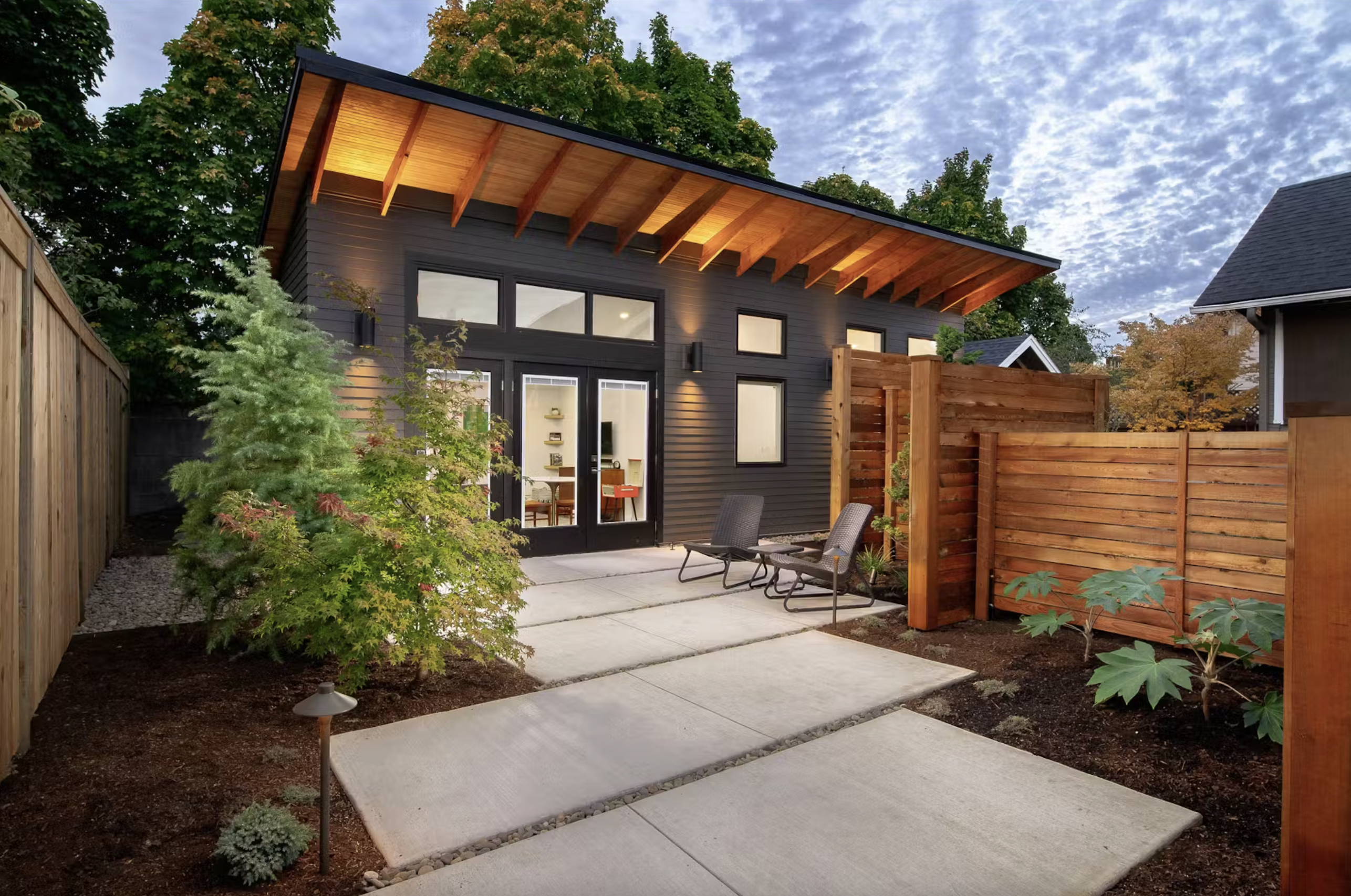A Homeowner’s Guide to Planning and Building an ADU in Los Angeles
Building an ADU can be a fantastic way to maximize your property space, generate additional income, or provide a private living area for family members. However, embarking on an ADU build involves careful planning and adherence to various regulations. Whether you’re a homeowner in Los Angeles looking to add an attached or detached ADU, or considering a garage conversion, these tips will help guide you through the process and ensure a successful outcome. From understanding local building codes to selecting the right contractor for your ADU, we’ve got you covered!
Based on our experience building dozens of ADU projects across Los Angeles, the tips below reflect the issues and decisions that matter most once a project moves from planning into construction.
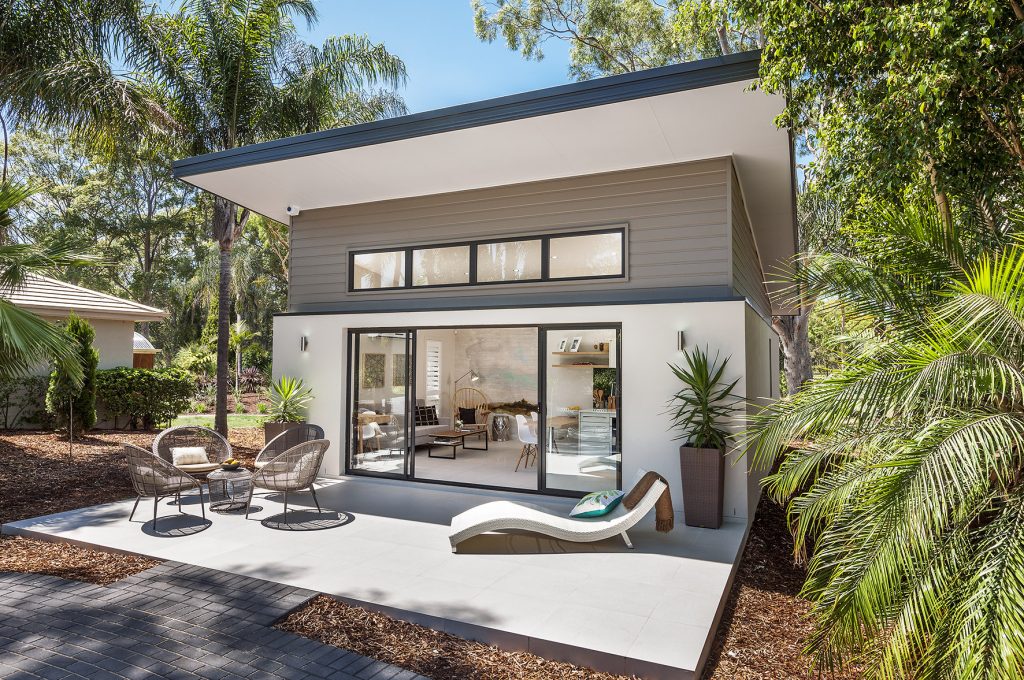
Decide Between Detached and Attached ADUs
When planning an ADU, consider whether a detached or attached ADU best suits your needs. An attached ADU offers cost-effectiveness by sharing walls and utilities with the main house, making it easier to integrate with the existing structure and often simplifying the permitting process. This option is ideal if you want to keep your family close and reduce construction costs. However, it may have limitations in space and privacy due to its proximity to the main residence.
On the other hand, a detached ADU provides greater privacy and flexibility in design. This can be a perfect solution if you intend to use the ADU as a rental unit or guest house, offering tenants or guests their own separate area. While a detached ADU typically involves higher construction costs and more complex permitting requirements, it can significantly increase your property’s value and appeal. Ultimately, your choice for building an ADU will depend on your budget, intended use, and how much space and privacy you desire.
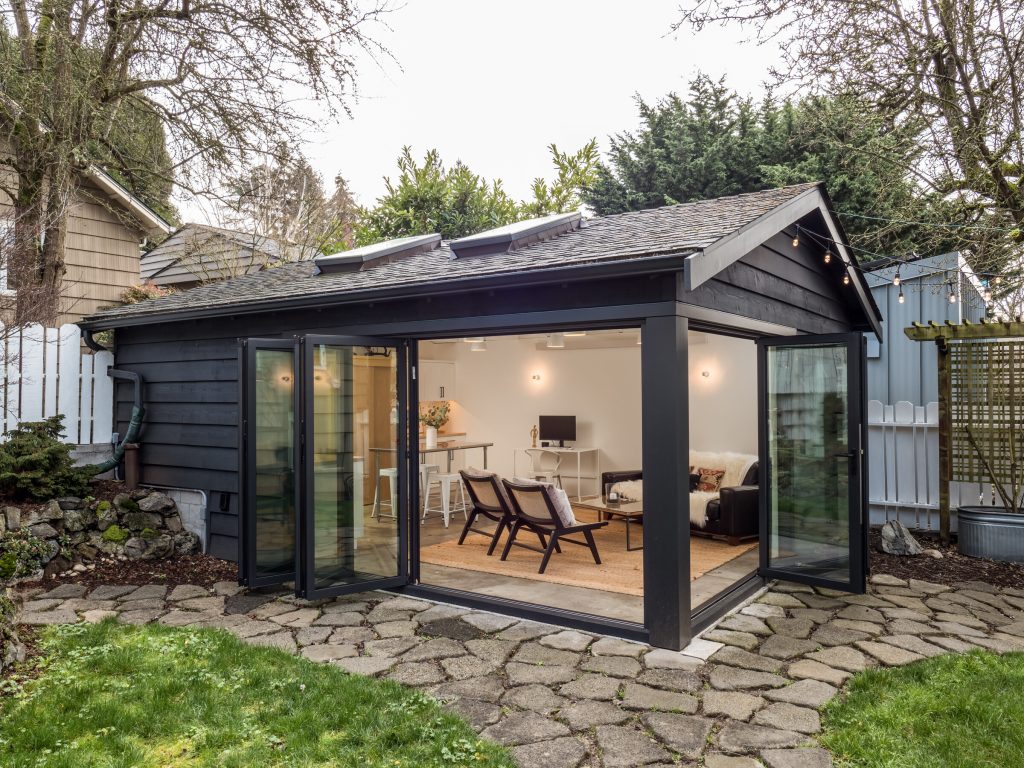
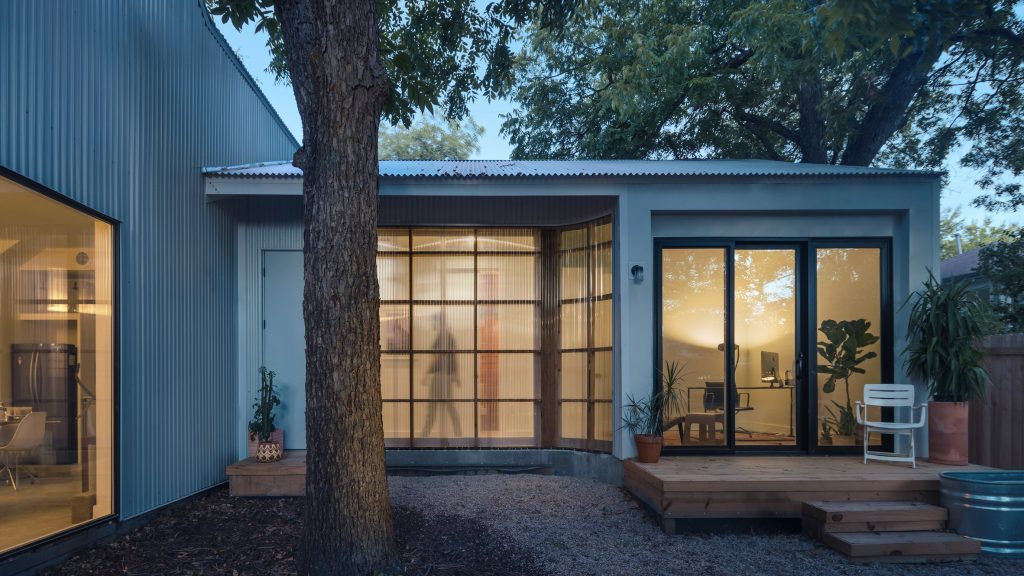
Budget Wisely
Ensure you have a clear budget and contingency for unexpected costs. In today’s Los Angeles market, ADU construction costs often exceed early assumptions, with many projects landing well above prior baseline figures.
Based on issues that have arisen on our past ADU projects, unforeseen expenses are common and should be expected. These often include structural upgrades identified during engineering review, utility capacity limitations, soil or foundation issues, and existing conditions that are not visible until construction begins. We typically advise homeowners that setting aside an additional 10–20% contingency helps account for these realities and reduces the risk of project delays.
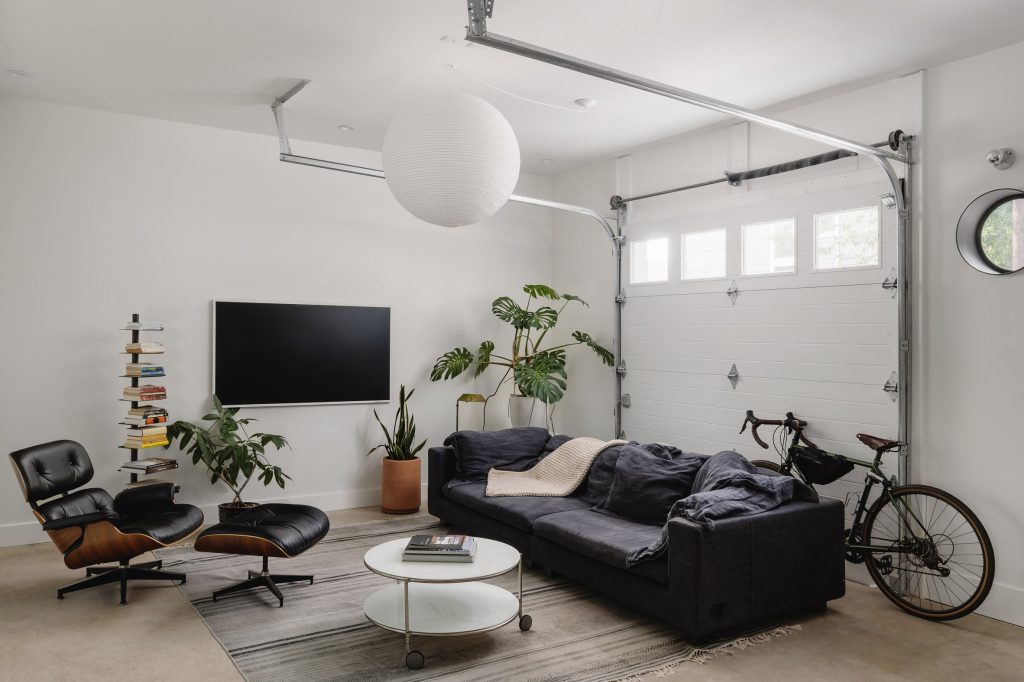
Understand Zoning Laws
Familiarize yourself with the zoning laws in Los Angeles. For example, some neighborhoods, such as those in the Hillside Area, certain parts of the Coastal Zone, and Historic Preservation Overlay Zones (HPOZs), may have restrictions on the size and placement of ADUs. In the Hillside Area, there are often stricter regulations due to concerns about land stability and fire safety. Coastal Zones might have additional requirements to protect coastal resources, while HPOZs often have guidelines to preserve the historic character of the area.
Understanding these regulations early can help save time and money when building an ADU by keeping plans compliant from the start. In our experience, zoning constraints that are identified early are far easier to design around than those discovered mid-permitting.
Plan for Privacy When Building an ADU
Design your ADU with privacy in mind for both the main house and the ADU. For instance, placing the ADU’s entrance on a different side of the property or using landscaping to create visual separation can enhance privacy for both living spaces. In one of our recent ADU projects in Culver City, we also installed wrought-iron gates and fencing to clearly separate the ADU from the main residence while maintaining an open, cohesive feel across the property.
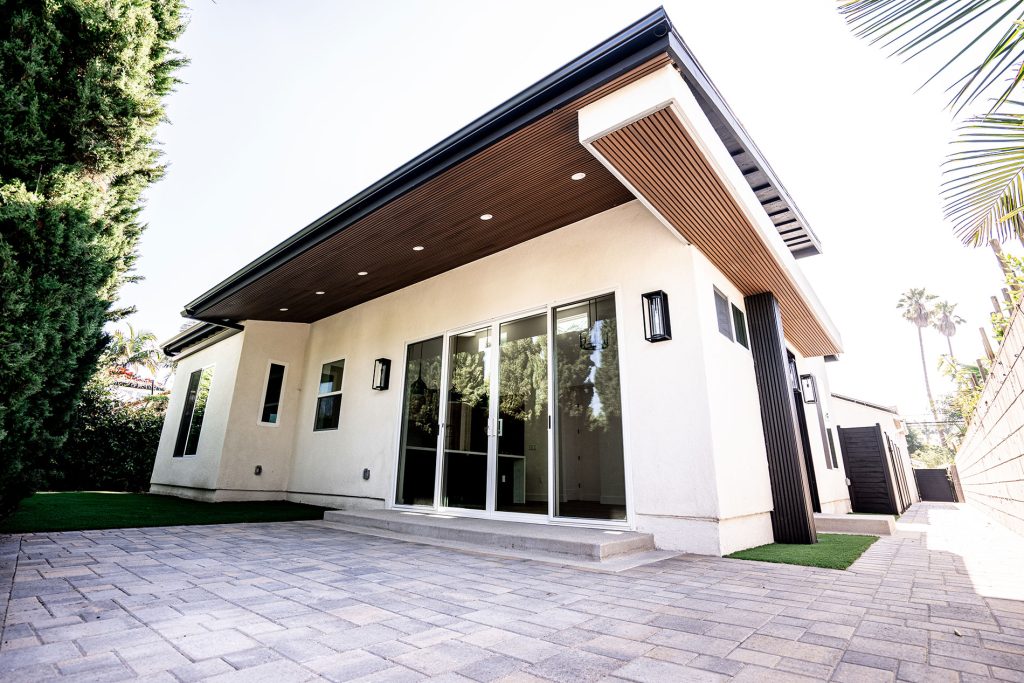
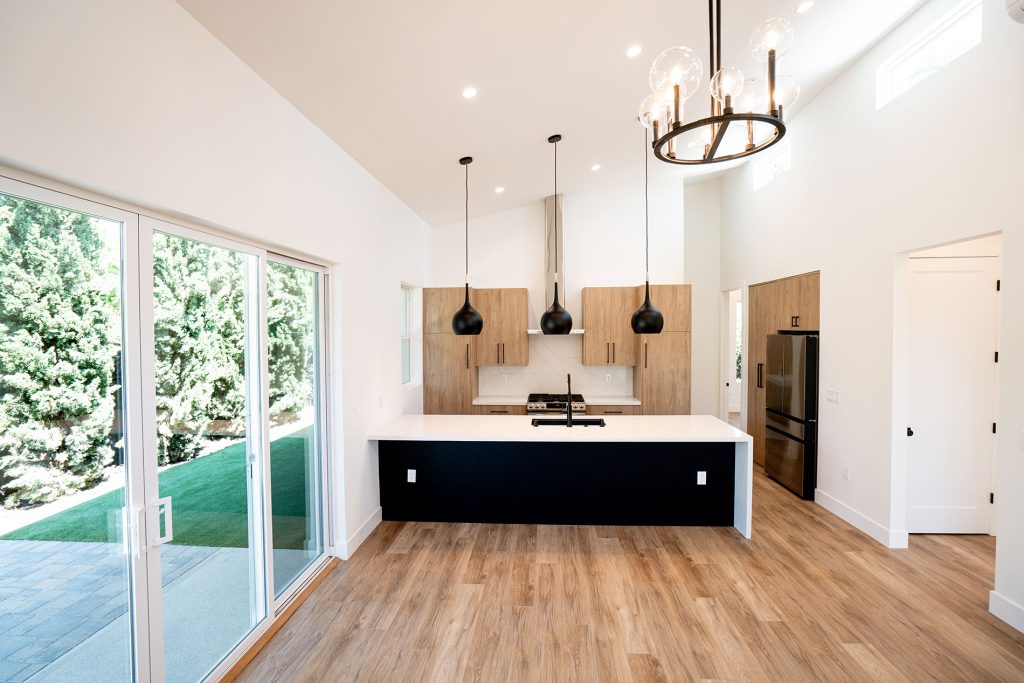
Consider Energy Efficiency
Incorporate energy-efficient features to save on utility costs and increase the value of your ADU. Installing energy-efficient windows, upgraded insulation, and high-efficiency HVAC systems can reduce long-term operating costs.
Across the ADUs we’ve built, energy-related upgrades are often driven as much by code compliance as by long-term savings, making them an important consideration early in the design process.
Decide on Square Footage
Consider how much space you need and how the ADU will function. Options range from studios and one-bedroom ADUs to two-bedroom and three-bedroom ADUs, as well as single-story and two-story units.
We often help homeowners evaluate layouts that have already been successfully permitted and built multiple times. Using pre-approved ADU plans based on designs we’ve constructed across dozens of projects can help streamline the permitting process while still allowing for site-specific adjustments.
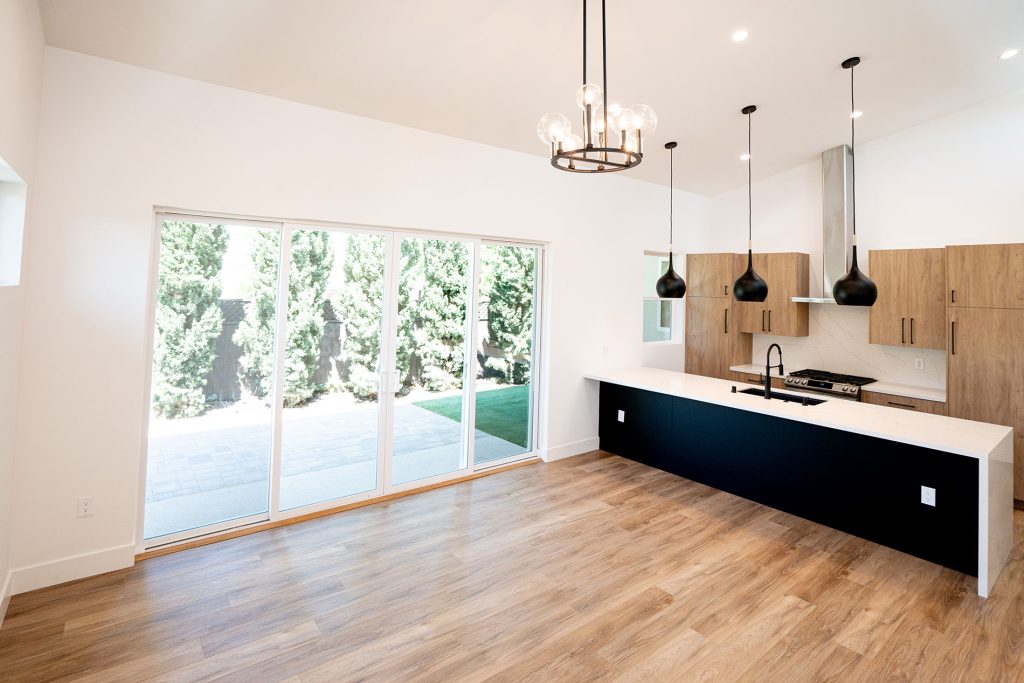
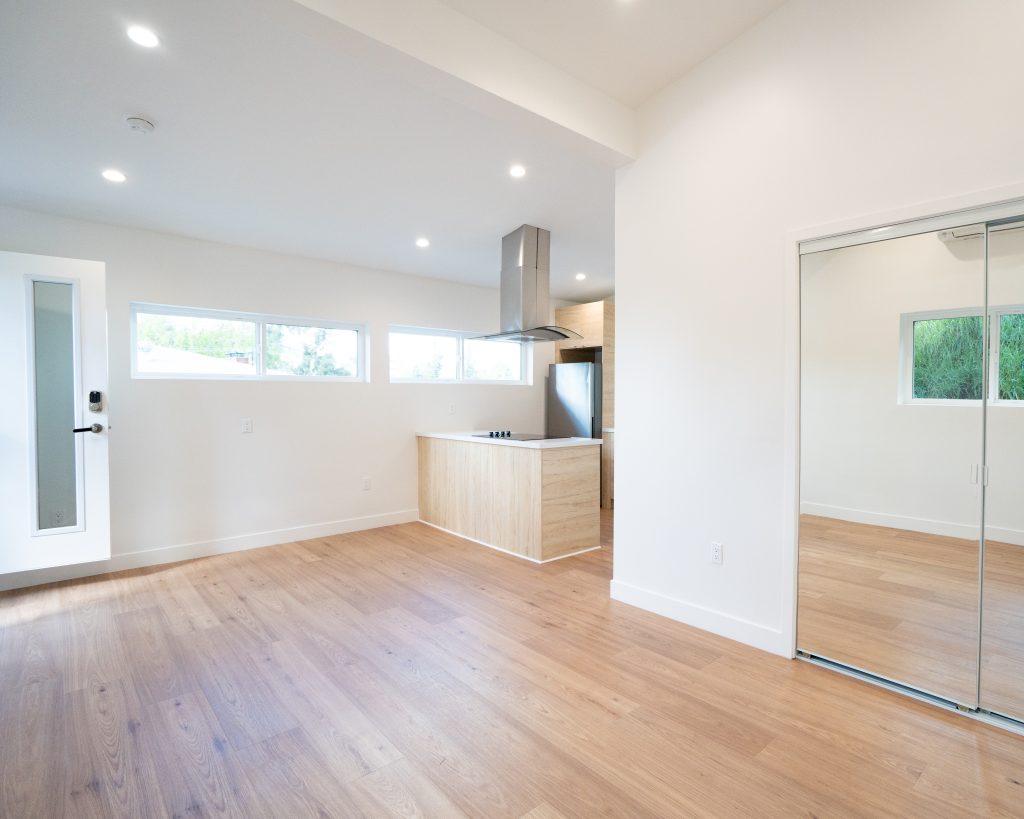
Check Utility Requirements
Ensure you meet local utilities’ requirements for water, power, and sewage. You may need to upgrade your electrical panel, install new service lines, or adjust sewer connections.
Across many of the ADU projects we’ve completed, utility capacity has been one of the most common drivers of cost and schedule changes. In one recent three-bedroom ADU project, the property required an upgrade to a 400-amp electrical service to meet current code and operational demands.
Stay Updated on Laws
Keep up with changes in state and local laws regarding ADUs in Los Angeles. Recent updates have eased parking requirements and improved the permitting process.
In practice, the City has also streamlined digital systems for permit tracking and inspection scheduling. Where projects once required coordination with multiple departments such as Public Works, Parks and Recreation, air quality agencies, housing departments, and the fire department, many Certificate of Occupancy conditions are now handled automatically once final inspections and utility clearances are complete.
Quality Materials
Invest in quality materials that will stand the test of time. Durable flooring, reliable fixtures, and well-made cabinetry can reduce maintenance costs and improve the ADU’s long-term performance.
From our experience, material choices that prioritize durability over short-term savings tend to perform better over the life of the unit, particularly in rental scenarios.
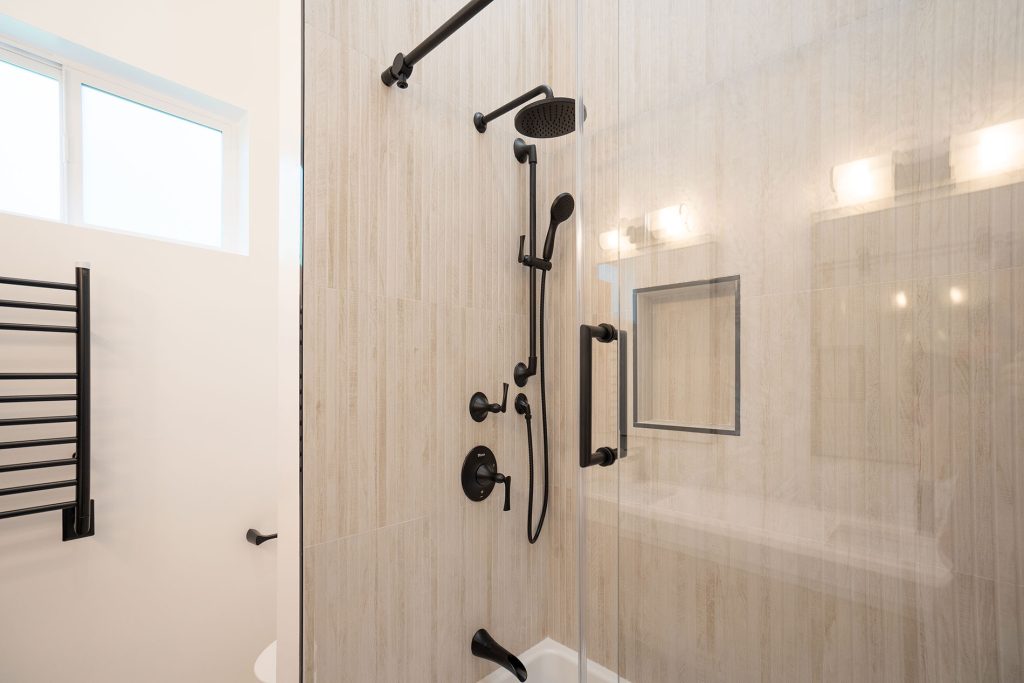
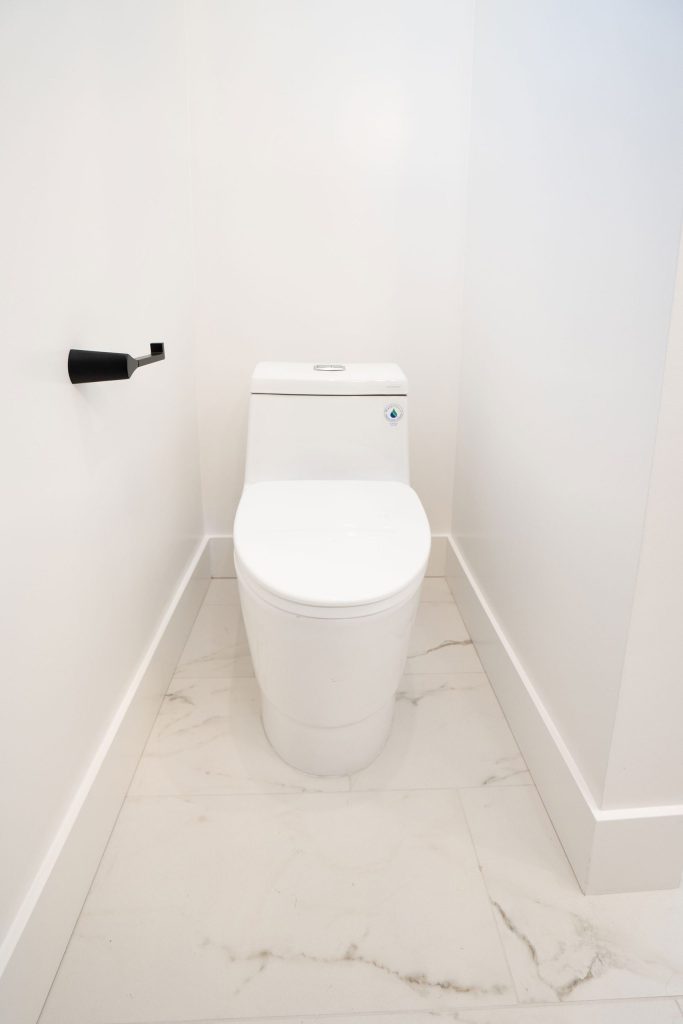
Building an ADU? Hire Professionals
Work with experienced ADU contractors in Los Angeles to ensure a smooth project. For example, Oasis Builders Inc. has extensive knowledge of local regulations and can help navigate the permitting process efficiently, preventing delays and costly mistakes. We follow high-standard building practices and proudly partner with trade associations like R&H, Pottery Barn, TileBar, and Build with Ferguson to ensure quality and excellence in every project.
Resources
Here are valuable resources to navigate building an ADU:
- Los Angeles Department of City Planning: This website provides comprehensive information on local zoning laws, regulations, and recent updates related to ADUs. You can explore their ADU-specific page here: LA Department of City Planning – ADU Information.
- California Department of Housing and Community Development (HCD): The HCD website includes details on state laws affecting ADUs, including recent legislative changes. Check out their ADU page for more information: California HCD – ADUs.
- City of Los Angeles ADU Guidebook: This guidebook provides an overview of the rules, benefits, and processes involved in building an ADU in Los Angeles. You can access the guidebook here: LA ADU Guidebook.
- Los Angeles County Public Works – ADU Resources: For information specific to Los Angeles County, this resource offers guidelines and requirements for ADU construction: LA County Public Works – ADU Resources.
